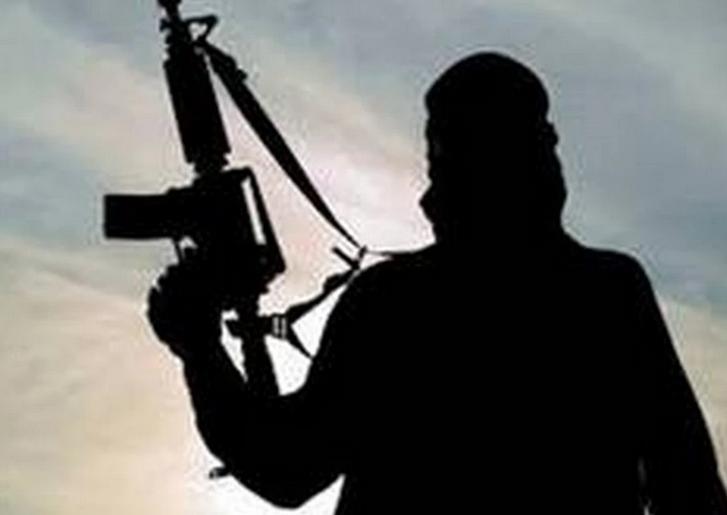
Pakistan Will Hit Terror Hideouts Inside Afghanistan
Pakistan’s defense minister, Khawaja Asif, has said that Islamabad has warned the Afghan Taliban it will strike terrorist hideouts inside Afghanistan if the de facto rulers in Kabul are unable to rein in anti-Pakistan militants.
In an exclusive interview with Voice of America, Asif said in his late-February visit to Afghanistan that he reminded Taliban leaders to live up to their cross-border security commitments forbidding terrorists from using Afghan soil to plan and conduct attacks on Pakistan or Islamabad will take action.
“If that is not done, at some point we’ll have to … resort to some measures, which will definitely — wherever [terrorists] are, their sanctuaries on Afghan soil — we’ll have to hit them,” he said. “We’ll have to hit them because we cannot tolerate this situation for long.”
Since the Afghan Taliban’s August 2021 takeover of Kabul, Pakistan has seen a resurgence in terror attacks led by Tehreek-e-Taliban Pakistan, or the TTP, an ideological offshoot and ally of the Afghan Taliban.
According to the Islamabad-based Pakistan Institute for Peace Studies, the country recorded at least 262 terror attacks in 2022, of which the TTP was responsible for at least 89. Last November, the group ended a unilateral cease-fire after talks with Islamabad broke down. Since then, the country has seen near-daily lethal attacks, most of them targeting members of the military and police.
Pakistan alleges TTP leadership is operating from Afghanistan after Pakistani military operations in the border areas a few years ago forced it to flee along with thousands of fighters.
When asked if he believed the Afghan Taliban’s assertion that the TTP is not operating from Afghan soil, Asif said, “they still operate from their soil.”
Asif claimed Taliban leadership “responded very well” to the recent warning. He said he believes that the Afghan Taliban are trying to “disentangle” from the TTP, after receiving support from the group to fight the U.S.-led coalition troops.
Last April, Pakistan struck what it claimed was a TTP outpost in eastern Afghanistan. However, a large number of civilian deaths in the operation led to a strong reaction by the Afghan Taliban.
Asif said he hopes the security threat to his country will not escalate to a point where “we have to do something which will be not to the liking of our neighbors and our brothers in Kabul,” whom he said Pakistan “wished well” in their efforts to establish their writ across Afghanistan.
But Asif also criticized former Pakistani prime minister Imran Khan and the previous military and intelligence leadership for allowing thousands of Taliban fighters and their families to return to Pakistan in a bid to continue negotiations with the militants. Intelligence reports say that allowed the terrorists to regroup.
In a recent interview with VOA, Khan defended that decision, saying Pakistan did not have many options.
“Should we have just lined them up and shot them or should we have tried to work with them to resettle them?” Khan said, accusing Pakistani security forces and intelligence agencies of negligence as terrorists reorganized.
Pakistani government and security officials allege TTP fighters attacking Pakistan are using arms and equipment left behind by U.S. troops at the end of the 20-year war in Afghanistan. State Department Counselor Derek Chollet told VOA in February that U.S. officials do not have an independent assessment of that claim.
Asif said the TTP was using light weapons, assault rifles, ammunition, night vision goggles and sniper rifles that U.S. troops left behind. When asked if Pakistan had shared any evidence with Washington, Asif questioned how that would help Islamabad as “Washington left … that sort of hardware on foreign soil because they couldn’t carry it.”
Alluding to the Taliban’s return to power in Afghanistan after two decades of fighting U.S. and coalition troops, Asif questioned Washington’s ability to fight terrorism successfully or the need to request its help to fight terrorism in Pakistan.
“I do not see any logic in that,” he said. “My personal view is that we can take care of this … menace ourselves.”
After conducting two large-scale military operations against terrorists in 2014 and 2017, Pakistan is once again contemplating a comprehensive plan, including a possible military operation in areas bordering Afghanistan. But Pakistan is also in the throes of an economic crisis as the threat of a default looms due to mounting external debt payments, dwindling foreign reserves and stalled bailout talks with the International Monetary Fund.
Asif said the economic crisis is the biggest threat for the country right now and the military, which receives the largest chunk of the annual federal budget, is looking at curtailing its expenses. However, he refused to specify where the cuts would be made.
He also did not elaborate on where the finances would come from if Pakistan decided to conduct a new military operation.
Pakistan’s military has a history of meddling in politics, a fact the previous army chief, Gen. Qamar Javed Bajwa, admitted publicly last year. Former Pakistani prime minister Imran Khan accuses the army of orchestrating his ouster a year ago, while his opponents accuse him of coming to power on the military’s back.
Asif believes the military will uphold its latest pledge of staying out of politics.
“I am 100% sure that the next election will … be [without] any interference,” he said.
Despite facing a trifecta of crises—political instability, an economic meltdown and rising terrorism—Asif said he has “absolutely no doubt” that Pakistan’s defense is stable.
Source » voanews





